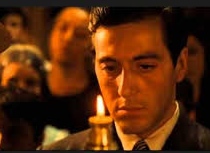
Why We Need Religion
A few weeks ago I wrote a blog entitled “The Antithesis to the Search for God.” It dealt with racism as an obstacle on the path to faith.
I’ve been thinking about that post, wondering whether I was “preaching to the choir” in writing about racism given the target audience for this blog. The blog’s description, posted permanently on the blog site, is “discussion of faith, belief and religion for people who have given up on God and/or religion.”
To be clear, disenchantment with religion in “the West” must be placed in perspective, at least for Judeo-Christianity. In the last 100 years, the number of Christians in the world has quadrupled from about 600 million in 1910 to more than 2 billion presently, according to an online source. The worldwide Jewish population is 13.3 million.
Most Americans who have given up on God/religion probably have done so for reasons other than racism. If we’re talking about young people, in fact, data show they are the least racist among us. That’s true though some young people have recently engaged in violent racist acts, according to news reports.
So if racism isn’t among the major obstacles in the search for God or religion, what is?
Widely Shared Reasons
Reasons are probably as numerous as the number of the people who have given up on God/religion. But here are some reasons that are widely shared.
The clergy abuse that occurred decades ago in the Catholic Church but is being reported day after day today are critical for some Catholics and other Christians.
Then there are gay rights, critical for many young people especially. It’s the new civil rights movement, as critical for many today as ending racial discrimination was for many people several decades ago. Some religions, including my own Catholic faith, have not sufficiently recognized this.
And in case you haven’t noticed, a sexual revolution has occurred in the last 20 years or so that would make the one that occurred in the 1960s look like shadow boxing. And as I’ve mentioned before, it occurred without religion firing a shot!
Pulpits Were Silent
By that I mean that most organized religions that teach sexual restraint mostly ignored the revolution. Pulpits were silent, not even confirming the church’s stance on sexual morality. Casual sex, as you know if you watch TV or movies, has become the norm. Marriage is held in lower esteem than at any time in my lifetime. And religion’s teaching on sex is widely ignored and characterized as something from the dark ages.
Some believe that religion, especially the “historical” religions like Judaism and Christianity, are incompatible with modern science. Others, aware of the fact that religion is held in less esteem by many, reject religion because it’s “not cool.”
I believe economic prosperity is another factor. In many cases, it promotes the perception that God is no longer needed.
But the most important factors, in my opinion, can be lumped in the category of “irrelevancy.” Another way of saying this is, “Who needs religion? I’m living my life well without it, thank you.”
I’m convinced, however, that religion has something fundamental and essential to offer, something that is missing from many people’s lives today, meaning. Religion offers an answer to the question, “Who am I?” and “Why am I here?”
Man’s Search for Meaning
Many readers may be familiar with the work of Viktor Frankl, the Austrian psychiatrist (d. 1997). He wrote a famous book called Man’s Search for Meaning, which made a great impression on me when I read it years ago. A 1991 Library of Congress survey placed it among the “10 most influential books in America.”
A concentration camp survivor, Frankl noticed that people most likely to survive were those who had found meaning in their lives, mostly through their religious faith.
“Frankl’s belief that what happens to you – including suffering – is secondary to your response to it,” an online summary says. “His book teaches that everyone must find his or her unique meaning and purpose in life, and fulfill it.” The treatment approach he developed from his experiences, call logotherapy, “asserts that all human beings have a will to find meaning.”
In my view, nothing provides meaning like faith in a God who offers unconditional love.



